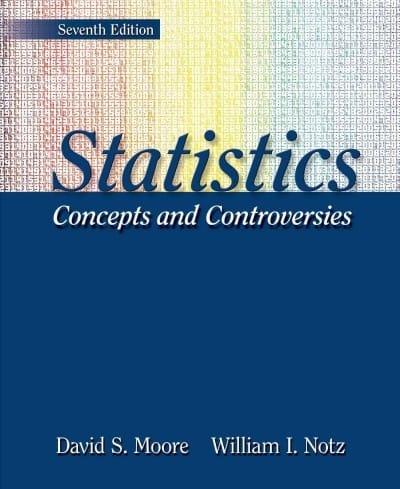In the long run. Probability works not by compensating for imbalances but by overwhelming them. Suppose that
Question:
In the long run. Probability works not by compensating for imbalances but by overwhelming them. Suppose that the first 10 tosses of a coin give 10 tails and that tosses after that are exactly half heads and half tails. (Exact balance is unlikely, but the example illustrates how the first 10 outcomes are swamped by later outcomes.) What is the proportion of heads after the first 10 tosses? What is the proportion of heads after 100 tosses if half of the last 90 produce heads (45 heads)? What is the proportion of heads after 1000 tosses if half of the last 990 produce heads? What is the proportion of heads after 10,000 tosses if half of the last 9990 produce heads?
Step by Step Answer:

Statistics Concepts And Controversies
ISBN: 9781429277761
7th Edition
Authors: David S Moore, William I Notz





